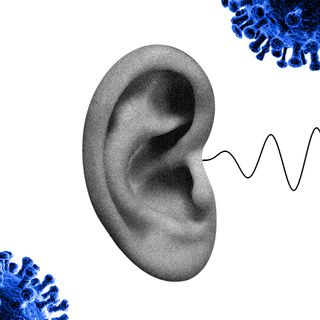Stress has gotten a bad rep in recent years,in part because its potentially serious, damaging effects weren’t acknowledged earlier. But it turns out that stress, in the right amount and of the right kind, isn’t all bad: it can strengthen our brains and boost our thinking skills, according to a new study.
The findings could help recast public perceptions of stress and lead to a more nuanced understanding of how it affects human health and wellbeing.
“It’s possible that experiencing stressors creates opportunities for you to solve a problem, for example, maybe fixing your computer that has suddenly broken down before an important Zoom meeting,” study author David M. Almeida, Ph.D., professor of human development and family studies at The Pennsylvania State University, in the U.S., said in a statement. “So experiencing these stressors may not be pleasant but they may force you to solve a problem, and this might actually be good for cognitive functioning, especially as we grow older.”
Related on The Swaddle:
Stress Is Contagious, but Here’s How We Can Avoid Infecting Each Other
Almeida isn’t referring to chronic stress — a long and persistent state of anxiousness and pressure that can lead to poor physical and mental health and impair cognitive function. Rather, his team tracked the stressors that crop up day to day — arguments with friends or family, a problem at work, a misbehaving child, plans gone awry, as well as symptoms of any chronic health conditions and general mood — by interviewing 2,711 participants at the end of each day for eight days.
Of these, about 10% reported no stressors in their daily life. This same group, however, performed worse overall on a pre-study cognitive test than their stressed peers. The difference in performance was not insignificant — roughly equivalent to eight years of aging-related mental decline, concluded the study, which was published in the journal of the American Psychological Association.
In other words, some level of stress may be helpful in keeping us mentally sharp.
But that helpfulness depends more on how we rise to the challenge than on a precise number and intensity of worries.
“Stressors are events that create challenges in our lives,” Almeida said. “… There could be potential benefits to that. I think what’s important is how people respond to stressors. Respond to a stressor by being upset and worried is more unhealthy than the number of stressors you encounter.”
It’s worth noting rising to the challenge doesn’t necessarily mean going at it alone, toughing it out, or keeping a stiff upper lip. Almeida’s research also found the people who reported feeling stress were more likely to give and receive emotional support than those who reported being stress-free.
“I think there’s an assumption that negative events and positive events are these polar opposites, but in reality they’re correlated,” he said. “… they might be a marker for someone who has a busy and maybe full life. Having some stress is just an indicator that you are engaged in life.”




